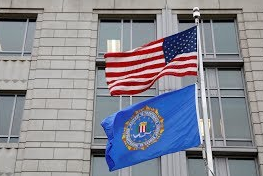Megan Thompson: An investigation published today by the Associated Press reveals the FBI did not alert hundreds of American officials that Russian hackers had targeted them and tried to break into their personal Gmail accounts in 2015. The same Kremlin connected hacking operation known as 'Fancy Bear' stole thousands of e-mails from the Democratic Party during last year's presidential campaign. To explain more about what the A.P. found, I'm joined via Skype by reporter Raphael Satter who is in London. First, can you just help us understand what is 'Fancy Bear' and who exactly are they targeting?
Raphael Satter: 'Fancy Bear' is the name that is commonly assigned to a group of hackers that's tied to the Kremlin and more specifically to Russian military intelligence. A couple of months ago, we got from a company called Secure Works, a list of about 19,000 malicious links that 'Fancy Bear' had been using over the past couple of years. We went through that list, crunched the data and we were able to identify about 4,700 unique people of which 500 or so are in the United States.
Megan Thompson: So then you began contacting these people?
Raphael Satter: It was extraordinary laborious work. We went about individually contacting all of these people and asked them basically some very simple questions – Were you aware that 'Fancy Bear' was targeting you? And number two, were you warned by anybody that this was happening, for example by the FBI? And overwhelmingly the answer to that last question was no.

Megan Thompson: And who are we talking about here? I understand some of these were government officials some with security clearance?
Raphael Satter: That's right. I mean it ran the gamut. We've spoken to all kinds of people – former Navy SEALs, people who are in NATO, ex-generals, former ambassadors, former policymakers. It's a lot of people who retired from the military or who retired from the State Department. But we've also spoken to some active duty soldiers and some of the people who haven't spoken to us include people who are still active in government work to this day.
Megan Thompson: So what did the FBI say when you asked them why they hadn't alerted people to the fact that these hackers were targeting them?
Raphael Satter: We didn't get very much on the record. The FBI gave us a statement which said that they make every effort to contact people who are affected. And that didn't really match up with what we've seen on the ground where we saw that the overwhelming majority of the people just hadn't heard from the FBI.
Megan Thompson: If you know, what is 'Fancy Bear's' goal here with targeting these people?
Raphael Satter: They are targeting a lot of people who are NATO people, work in the military people, who work in the State Department, and people who work for military contractors. This suggests that they're very interested in people who work in the military and maybe in military technology. They might be interested in keeping an eye on what diplomats are saying to each other privately. Potentially, they could be gathering embarrassing information to publish as they did with the DCLeaks or potentially they're just doing classic intelligence gathering.











